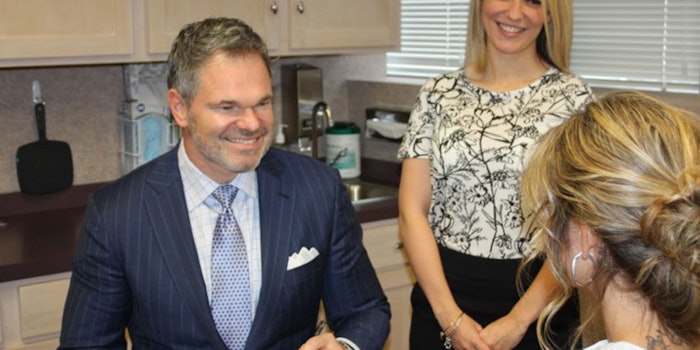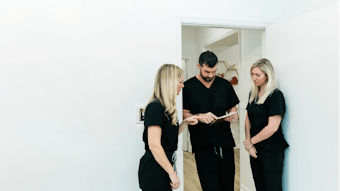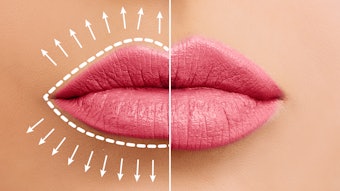
Editor's Note: This is the first article in a two-part series. Read more on Reedy's approach to patient privacy in Part II.
Brian Reedy, M.D., takes patients into the procedure room and informs on esthetic treatments, results and risks—all through their phone or computer screen. The board certified plastic surgeon streams procedures live on Facebook from his practice, Berks Plastic Surgery, in order to give patients a consult from the comfort of their own home.
In an exclusive interview, Reedy spoke to Skin Inc. on being a physician in the digital age and how to promote truth in esthetic medicine.
Accuracy is Key
In an era where anyone can post information to the internet, Reedy takes care to provide accurate and realistic information on esthetic procedures, and to make it accessible and clear to patients and viewers that he is qualified to speak on the topics of his videos.
"Reality TV and social media have led many patients to have unrealistic expectations."—Brian Reedy, M.D.
According to Reedy, social media is a double-edged sword. In some ways it is easier to reach the audience you want to reach with social media, but there is so much out there on the internet and social media that is often incorrect, or patients see results that may be great for that one particular example but are not typical.
"I find that I need to take the time to correct any misinformation that a patient has gotten from online, and I need to take the time to make sure that their expectations are in line with that I can provide,” added Reedy. “Reality TV and social media have led many patients to have unrealistic expectations as to what can be consistently be achieved, whether it’s surgical or nonsurgical.”
Reedy worries that the platform is ripe for abuse, but notes that the same could be said for any other platform. Overall, his takeaway of Facebook Live is the ability to connect with and educate patients on a scale that was previously impossible (and their positive reception, in turn).
Digital Invasion
Noting that Facebook Live can be compared to “family TV,” Reedy chooses treatments and video topics while acknowledging that a lot of plastic surgery procedures may not be appropriate for all ages that may come across the practice’s page.
Instead, he selects topics based on patient interest that stay away from the physical side of esthetics. Reedy and his estheticians have performed Botox, fillers, CoolSculpting and ThermiSmooth treatments on Facebook Live so far.
"Facebook allows [patients] to ask questions and leave comments so they can get a mini consult from the privacy of their own home."
“With the rise of social media and other outlets that patient populations—who a decade or two decades ago may not have known what was available to them—now find out what is available and in fact affordable. You’re seeing a broader socioeconomic demographic of people seeking out cosmetic surgery and cosmetic medicine.
“I think that on a whole it’s been a good thing for our specialty and our industry. It has also led to a significant amount of misinformation and often unrealistic expectations on the part of the patient. As a physician, it is my responsibility to make sure that those two things are handled carefully,” said Reedy.
Facebook Live narrowly edged out YouTube live streaming (as of November 2016), with the platform’s dynamic engagement possibilities drawing in Reedy and other informational content-makers. Berks Plastic Surgery began posting esthetic procedure videos to YouTube four years ago, but it was only once they offered live videos that patients could comment on, share and watch in real-time that their content began to be viewed tens of thousands of times. The videos remain static on the practice’s Facebook page for patients to view after the fun of the live video comes to an end.
“The biggest advantage [of Facebook Live] is that it allows the patients to interact live, so they feel like they’re part of it. Facebook allows them to ask questions and leave comments so they can get a mini consult from the privacy of their own home,” said Reedy.










